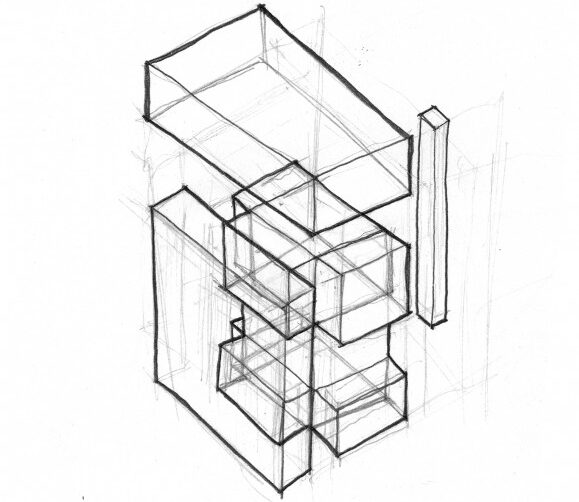- Home
- Articles
- Architectural Portfolio
- Architectral Presentation
- Inspirational Stories
- Architecture News
- Visualization
- BIM Industry
- Facade Design
- Parametric Design
- Career
- Landscape Architecture
- Construction
- Artificial Intelligence
- Sketching
- Design Softwares
- Diagrams
- Writing
- Architectural Tips
- Sustainability
- Courses
- Concept
- Technology
- History & Heritage
- Future of Architecture
- Guides & How-To
- Art & Culture
- Projects
- Interior Design
- Competitions
- Jobs
- Store
- Tools
- More
- Home
- Articles
- Architectural Portfolio
- Architectral Presentation
- Inspirational Stories
- Architecture News
- Visualization
- BIM Industry
- Facade Design
- Parametric Design
- Career
- Landscape Architecture
- Construction
- Artificial Intelligence
- Sketching
- Design Softwares
- Diagrams
- Writing
- Architectural Tips
- Sustainability
- Courses
- Concept
- Technology
- History & Heritage
- Future of Architecture
- Guides & How-To
- Art & Culture
- Projects
- Interior Design
- Competitions
- Jobs
- Store
- Tools
- More
Solve HVAC Issues Immediately With These Effective Tips

Table of Contents Show
Maintaining a functional HVAC system is crucial for keeping your home comfortable year-round. Whether it’s a scorching summer or a chilly winter, your HVAC system ensures the indoor environment is just right. However, even the best-maintained systems can encounter issues. Prompt action is key to preventing minor problems from escalating into costly repairs or replacements. Here are some effective tips to address HVAC issues promptly and maintain system efficiency.
Schedule Routine Maintenance
Preventative maintenance is essential for the longevity and performance of your HVAC system. Schedule professional Dallas HVAC services, for example, at least twice a year—once before the cooling season and once before the heating season. Technicians can identify and fix potential issues, clean components, and ensure your system operates efficiently. Investing in routine maintenance helps you avoid unexpected breakdowns and costly repairs.

Identify Warning Signs Early
Recognizing the warning signs is an important step. Pay attention to unusual noises, reduced airflow, inconsistent temperatures, or unexplained spikes in your energy bills. These can signal problems such as clogged filters, failing components, or ductwork leaks. Early detection allows you to take swift action, reducing the likelihood of more extensive damage. Regularly inspect your system for visible issues, and if something seems off, don’t delay investigating further.
Replace or Clean Air Filters Regularly
Dirty or clogged air filters are one of the most common causes of HVAC problems. Filters trap dust, pollen, and other contaminants, but when they become full, they restrict airflow and strain the system. This can lead to reduced efficiency and overheating. Make it a habit to check your filters monthly and replace or clean them as needed, typically every 1-3 months. Clean filters improve air quality, enhance system performance, and lower energy costs.
Inspect and Clean the Outdoor Unit
Your HVAC system’s outdoor unit, often referred to as the condenser or heat pump, plays a vital role in temperature regulation. Over time, debris like leaves, dirt, and grass clippings can accumulate around the unit, obstructing airflow and reducing efficiency. Regularly inspect the area around your outdoor unit and clear away debris. Additionally, gently clean the fins and coils using a soft brush or hose to maintain optimal performance.
Seal Ductwork Leaks
Leaky ductwork can significantly compromise your HVAC system’s efficiency, causing heated or cooled air to escape before it reaches your living spaces. This not only wastes energy but also forces the system to work harder, leading to wear and tear. Inspect your ducts for visible cracks or holes, and seal them with duct tape or mastic sealant. For larger or less accessible leaks, consider hiring a professional to ensure a thorough repair.
Calibrate Your Thermostat
A poorly calibrated thermostat can cause temperature inconsistencies and inefficient system operation. If your home feels too hot or cold despite your thermostat settings, calibration might be the issue. Consult your thermostat’s manual for recalibration instructions or upgrade to a programmable or smart thermostat. Smart thermostats offer additional benefits, like remote control and energy-saving schedules, ensuring your system runs efficiently at all times.
Ensure Proper Insulation
Inadequate insulation can make your HVAC system work harder than necessary to maintain a comfortable indoor temperature. Check your home’s insulation, especially in the attic, walls, and around windows and doors. Adding insulation or sealing gaps can prevent heat transfer, reduce energy consumption, and ease the burden on your HVAC system. This simple step not only solves efficiency issues but also improves overall comfort.

Check Refrigerant Levels
Low refrigerant levels can impair your HVAC system’s ability to cool or heat effectively. This issue often arises from leaks in the refrigerant lines. If you notice your system struggling to reach the desired temperature or ice forming on the coils, it’s time to check the refrigerant. While refilling refrigerant requires a licensed technician, detecting the problem early can save time and money.
Address Electrical Issues Immediately
Faulty electrical connections can disrupt your HVAC system’s functionality and pose safety hazards. If your system fails to turn on or frequently trips the circuit breaker, inspect the electrical components for loose connections, damaged wires, or burnt marks. Turn off the power to the unit and consult a professional to address any electrical issues safely.
Avoid DIY Repairs Beyond Basic Maintenance
While basic tasks like cleaning and filter replacement are manageable for most homeowners, more complex HVAC issues require professional expertise. Attempting DIY repairs on components like compressors, refrigerant lines, or electrical systems can lead to further damage or void warranties. Know your limits and call a licensed technician for complicated problems to ensure safe and effective repairs.
Dealing with HVAC issues promptly is crucial to maintaining a comfortable and energy-efficient home. By recognizing warning signs, performing routine maintenance, and addressing minor problems before they escalate, you can ensure your HVAC system operates smoothly. These tips provide a proactive approach to HVAC care, but remember, professional assistance is always the best choice for complex issues. Stay vigilant, and your HVAC system will reward you with reliable performance for years to come.
illustrarch is your daily dose of architecture. Leading community designed for all lovers of illustration and #drawing.
Submit your architectural projects
Follow these steps for submission your project. Submission FormLatest Posts
Shigeru Ban Architecture: Vision, Awards & Humanitarian Design
Discover how Shigeru Ban revolutionized architecture with paper tubes, disaster relief shelters,...
Revolutionizing Video Commerce: How E-Commerce Brands Are Scaling Product Videos with AI
Table of Contents Show The Product Video Problem: Why Scale MattersThe Seedance...
The Complete Beginner DIY Plumbing Checklist: A Step-by-Step Guide for First-Time Home Projects
Table of Contents Show Step 1: Confirm the Job Is Truly Beginner-FriendlyStep...
Top Job Alternatives for Architects and Interior Designers
Explore diverse job alternatives for architects and interior designers, from creative roles...












Leave a comment